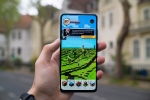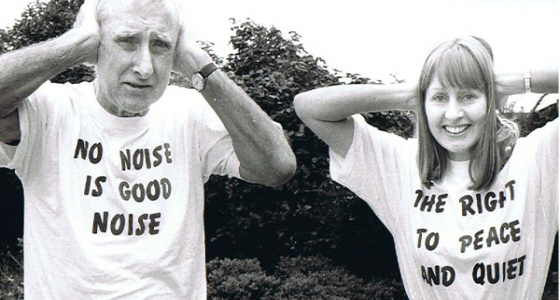
I got up this morning and had breakfast, then started writing about Spike Milligan, because people are always asking me how did I get to work with the comic genius and what was he like? Well, working alongside the great man was not only a great privilege, but an interesting and challenging experience. The story doesn’t end there.
Spike’s manic depressive illness was well documented and he’d got a reputation of being difficult and unpredictable. He did stretch my patience at times, but he also made me laugh, a lot
I first made contact with Spike in 1991 when I founded the campaign the Right to Peace and Quiet. I had just been through an awful experience with a noisy, anti social neighbour. The original objective of the campaign was to initiate a debate on a subject I felt had been given a bad press. I knew that having a well known public figure involved would catch the attention of both the public and the media. But it was really difficult getting any celebrity associating themselves with such an unpopular issue. They were more than happy to have their face or name linked to things like protecting an endangered species or saving the planet, but a subject involving bad behaviour and conflict was not very appealing at all. Spike of course never worried about his image in this way, particularly if it was something he felt really passionate about. So he seemed the ideal person to approach.
I had seen Spike on a number of television programmes talking about how he detested noise in all its forms. He had become badly affected by noise whilst serving in the armed forces during the Second World War. The sound of gun shots and bombs led to him becoming acutely sensitive to noise. And his manic depressive illness added an additional complication in his response to noise. He’d also had a couple of neighbour noise problems and had a real aversion to piped music. It is rumoured that Spike once ripped out speakers in a lift. As a musician Spike felt that music should be enjoyed out of choice, not forced on you in places like public loos or lifts.
There was also the story that Spike had taken a pot shot at a neighbour’s dog for barking constantly. It was reported that Spike’s neighbour yelled at him in horror saying “what did you do that for? The dog was only doing it’s natural thing.” To which Spike responded “Yes, and I was doing my natural thing in return”
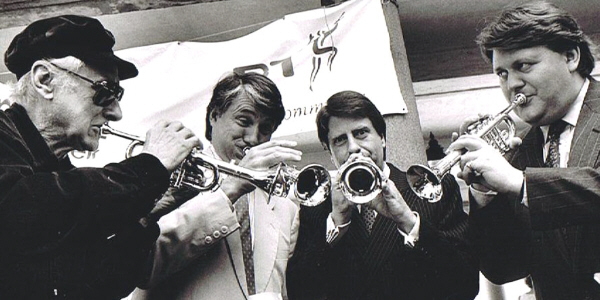
So, with these incidents in mind, I wrote to Spike asking him if he we support my campaign. After I posted the letter I put the matter out of my head, not really knowing if he would respond or not. Then one day, whilst at home ironing, the phone rang. On answering it, a voice at the other end said “Hello Val, this is Spike Milligan. You wrote to me about your campaign. How can I help?”
Now, this was a problem, as I hadn’t really thought that far ahead. I had no real idea of what I wanted to Spike to do, well, other than say he supported the campaign. “I’m not sure.” I said, giving myself a bit of time. But, before I could come up with any ideas, Spike made his own suggestion “I’ll be your Patron.” He said
Before saying goodbye he added “Call me whenever you need me.” Of course I wasn’t sure what a Patron actually did, but I was bubbling with excitement and wondered what to do next. Do I finish the ironing, or phone the local paper? I opted for phoning the local paper, eager to let them know that the comedian Spike Milligan was the Patron of my campaign Being a Patron must be a good thing as they were impressed. The reporter suggested I have my photo taken with Spike as this would guarantee them running an article.
So I phoned Spike back and explained. “Come to my house this Sunday at 11am” he said. Then I wondered. What sort of photo should I take? T-shirts are always a good option, so I had two made up with slogans relating to the campaign. My husband Phil is a photographer, so that Sunday we set off from our home in south London to Spike’s house in West Sussex. We arrived just before 11am.
It was a magnificent house with a rambling front garden overlooking fields. The weather was quite pleasant and Phil suggested to me that it would be nice to have the photos done outside. We approached the large front door and pressed the bell. Within a few seconds Spike slowly opened the door “You’re early” he snapped. I looked at my watch confused. It was two minutes to 11am He ushered us in. It was obvious he did not want to hang around and looked very impatient. This was not the same Spike I had spoken to on the phone. But, I said to myself, it is a Sunday and he’s been good enough to invite us to his home. So I shouldn’t really complain.
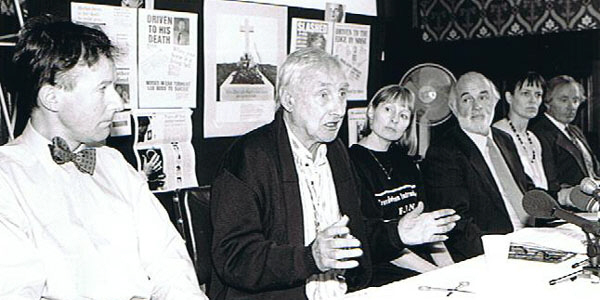
We were guided into one of his rooms that had a huge piano and other bits of expensive looking furniture. It wasn’t his office, but possibly a room that Spike spent time in relaxing and working.
After thanking him for seeing us and agreeing to be part of the campaign, Phil asked Spike if we could go outside to have the photos taken. An irritated Spike quipped “Why? Doesn’t your camera take photos indoors?” Phil went on to explain the lighting was better outside and he didn’t want to use a flash indoors. Spike’s off-handedness made me very nervous when I asked him if he’d put on the t-shirt I’d had made. He was not happy. “You know, you really should let me know in advance if you want me to wear t-shirts” he said firmly. I apologised sheepishly. But thankfully Spike put it on and agreed to have photos taken in the garden. Result.
As we walked into the front garden, Phil looked around for a good place for us to stand. Then he suggested we put our hands over our ears to give the impression we were blocking out noise. Spike complied happily. Phil started taking his pictures happily clicking away. After just a few frames Spike put his hands down. “That’s enough”. he said. And the photo shoot was over. We didn’t argue. We were catching on fast. He shook our hands, we thanked him and he made his way back indoors, leaving us standing in the front garden. We got back in our car and I looked at my watch. It said five minutes past eleven
Despite our brief session with Spike, the local paper was delighted with our photos and the story made the front page This publicity led to radio interviews, magazine features and national newspaper articles. Then one day the television programme “World In Action” called me. This was huge. Getting such a high profile programme interested was a real achievement. They wanted to interview Spike at my house, which had become the campaign headquarters. When Spike arrived I was being interviewed by the film crew. So it was left up to Phil to be host. He did the polite thing of offering Spike a cup of tea. Now I have to point out that at that time Phil was not a tea drinker himself. So when Spike’s cup of tea arrived Spike took a sip and pulled a face. “This tea is cold” he said. Phil apologised explaining “Sorry Spike, I don’t normally make tea”. Spike looked at him curiously and replied “Really? Well, what do you do with it?” Phil took it well. After- all, it’s not everyday you get your legged pulled by a comic genius.
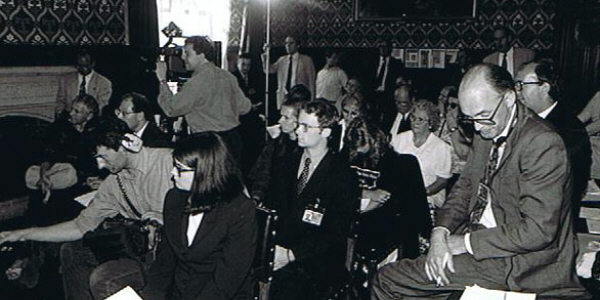
Once Spike’s interview was over the Producer asked if he would be kind enough to pose for photos outside. Spike was in a reasonably good mood that day as he happily complied. I did feel sorry for him though. This was December, he was wearing a t-shirt and it was freezing cold outside. But Spike knew these photos were needed to publicise the programme. And they did. The day the programme was due to be broadcast the photo appeared in nearly every national newspaper. And as a result, the programme received over 9 million viewers.
Spike may have been a difficult character, but he was hugely generous in his support for the campaign. We held a number of events and many Press Conferences at the House of Commons. The only thing he ever asked for in return was transport to and from his house. The events were always very well attended by television, radio, newspaper and photographers. All eager to get a quote or quirky picture of Spike. MPs and Ministers were more than happy to have their photo taken with him too.
Spike could be extremely serious at Press Conferences, but his humour was always there waiting in the wings. I remember one journalist asking him “What do you think should happen to noisy people?” Spike was quick to respond with “They should be shot, flattened and turned into bookmarks.” The press appreciated his honesty and directness. “Aren’t you being a kill joy” they joked with him. Spike would simply reply “Yes.”
The security guards and other staff at the House of Commons just loved Spike. But there was a limit to Spike’s patience when it came to the excessive side of the attention he got. He was not shy in telling photographers to stop when he’d had enough and when he was ready to leave and event he would just get up and go . He hated standing around outside and being at the mercy of curious passers-by who would stare at him or take photos. It wasn’t the public’s fault. They were fond of him and it was just their way of showing their appreciation. Anyway, it meant that I needed to be on my guard waiting for Spike to make his move, so that I could ensure his driver was waiting outside ready to collect him.
There is only one driver Spike would ever travel with. His name was Alan Wise and Alan lived close to Spike’s house in Sussex. Alan had been driving Spike around for many years. When I first phoned Alan on Spike’s recommendation, he explained that he’d come to understand Spike’s moods. If Spike didn’t want to speak, then Alan would just leave him alone. Spike appreciated this.
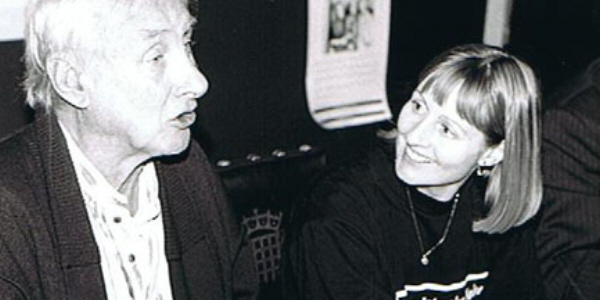
It took me a while to come to terms with the two sides to Spike. One moment he could be extremely friendly and cooperative, the next time he could be extremely stubborn and unhelpful. These mood swings were all part of his manic depressive nature, so I did understand. I was apprehensive when a journalist called asking to interview Spike. I would pace around the kitchen before taking the courage to pick up the phone and call him. Most of the time Spike answered his own calls, but occasionally his wife Shelagh answered. When this happened I knew something was wrong. It meant that Spike had been hospitalised and understandably they didn’t want the press to know. They were desperate to avoid the invasion of his privacy during these dark moments in his life. So I would make up excuses saying simply he was unavailable, or away working. These periods could last a few weeks or even a few months. But I came to appreciate that Spike needed his space and would keep in touch with him sending postcards or letters. It was sad to see him suffer but he would come out of these depressions and be back on top form again.
We worked flat out on the campaign for 5 years and in December 1996 I received a letter from Downing Street awarding me an MBE. This was great news and a real surprise. It was rare to receive an Honour for something that had only been running for a short space of time. It was more common for people to get Honours for say 25 years of service, so 5 years was quite unusual. There is no doubt that Spike’s involvement in the campaign led to my name being put forward for consideration. The ceremony took place in March 1997 at Buckingham Palace in front of the Queen. I hired a pub in central London called the Marquis of Granby for the party afterwards. I sent Spike an invite not really expecting him to come. But he phoned me the day before saying he would definitely be there. Family, friends and a Canadian television crew who were producing a documentary, were all there. An hour into the celebrations word went around that Spike was on his way. I made my way to greet him. As he came up the stairs he snapped “You sent me to the wrong pub.” It turns out he’s gone to another pub called the Marquis of Granby in south London. He was not happy. As we entered the room people started taken photos. The flash of the cameras triggered another hostile reaction from Spike. “No pictures” Spike bellowed. We sat Spike down and got him a drink. He was irritated and I was intrigued as to why he’d come along.
The television crew were eager to interview him and I expected the worse. But instead he was extremely complimentary and I was very touched. This was a typical unpredictable Spike moment.
Then, again, true to form, Spike stood up and announced he was going. A quick phone call was made to his driver and I accompanied him downstairs. As we stood there in the doorway of the pub I seized the opportunity to question him about his work. What’s the key to writing Spike? Half expecting him to scoff at my question, but I was pleasantly surprised.
“Well” he said, “there’s no mystery to it really. You just start at the beginning and finish at the end. You write I got up in the morning and had breakfast, then carry on from there.” Ah, I get it. You just tell the story. And with that he was gone. We only really kept in touch with Christmas cards as his health did deteriorate in the following years. He died in 2002
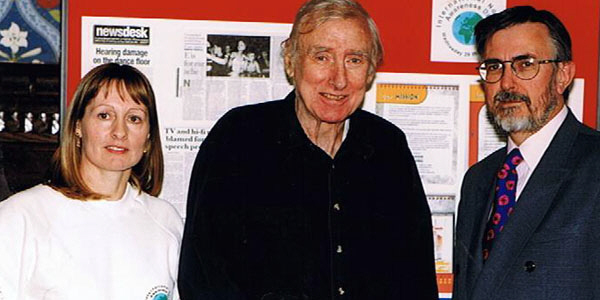
© Words – Val Weedon/ ZANI
© Photographs - Phil Weedon



